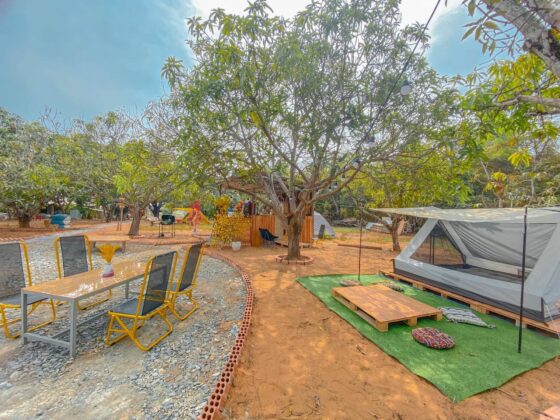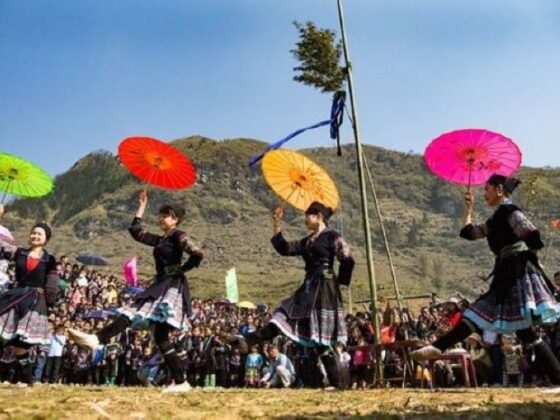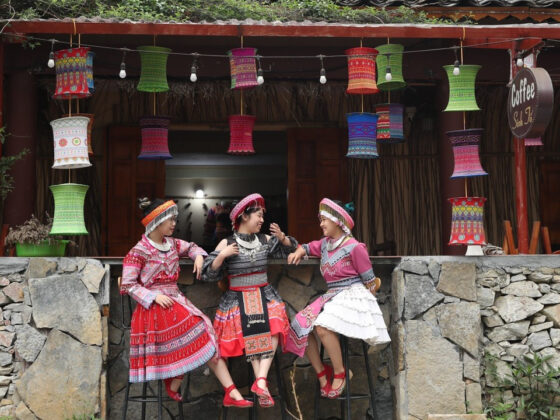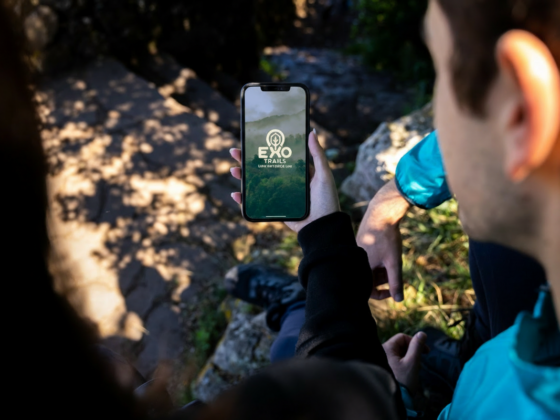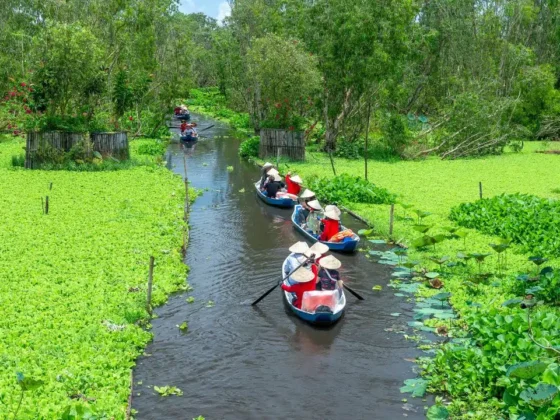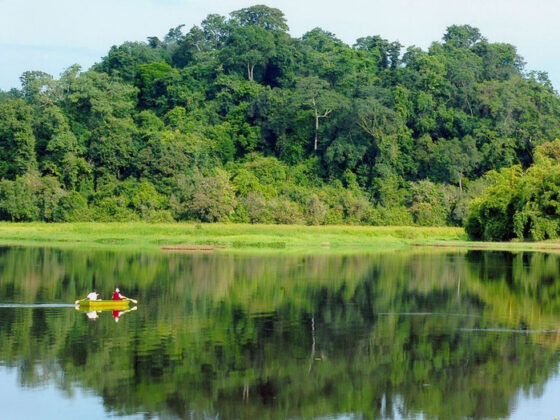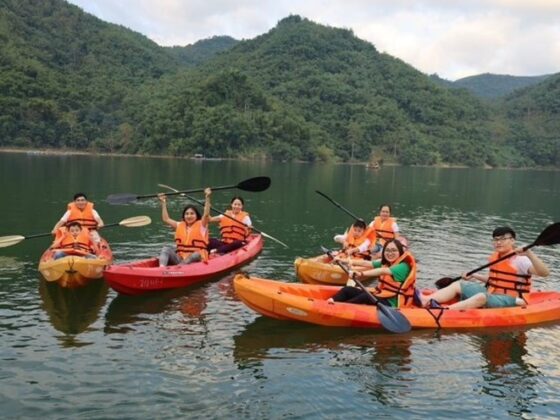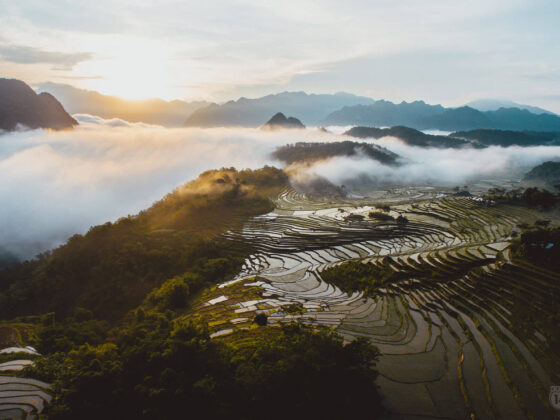Table of Contents Show
✍️ AI is summarizing:
If you’re an adventure enthusiast looking to explore nature on two wheels, bikepacking Vietnam is an experience you can’t miss. With breathtaking routes ranging from the winding Hai Van Pass to the rugged mountains of Sapa, Vietnam offers endless opportunities for cyclists seeking the ultimate journey.
However, proper preparation is key to ensuring a smooth and enjoyable ride. This guide will help you plan the perfect bikepacking Vietnam trip, covering everything from essential gear to the best destinations for an unforgettable adventure.
Related post:
- Hanoi Bike Lane: A New Step Toward Sustainable Transportation
- Understanding E-Bike Benefits: Is It Right for You?
- Motor Memory Science: How We Learn and Remember to Ride a Bike
The thrill of bikepacking Vietnam

Bikepacking Vietnam opens up a world of exploration, allowing cyclists to venture beyond the typical roads and discover hidden gems in nature, from the verdant landscapes of Vietnam to the rugged terrain of the country’s mountainous regions. However, it does come with its own set of challenges that must be thoughtfully addressed.
Essential gear for a successful bikepacking Vietnam trip
The key to a successful bikepacking Vietnam experience is ensuring the bicycle is properly equipped. This means outfitting it with sturdy luggage racks that can support the weight of camping gear.
Bike-specific panniers, which come in various sizes, are essential for securing belongings while on the move. These panniers can typically hold around 20 liters in the rear and 12 liters in the front, providing ample space for the tent, sleeping bag, cooking equipment, and other necessities.

In addition to the panniers, a bike duffel bag strapped to the luggage rack can accommodate bulkier items like a tent and sleeping pad. When it comes to shelter, lightweight backpacking tents are ideal, as they won’t weigh down the bicycle excessively.
However, some cyclists prefer the simplicity and ventilation of a tarp setup, which can be a more cost-effective option. For those camping in forested areas, a hammock can be a comfortable alternative, allowing the sleeping quarters to be suspended off the ground.
Meal preparation and food choices for bikepacking Vietnam
Meal preparation is another crucial aspect of bikepacking Vietnam. Ultralight cooking kits and stoves are readily available, though they can be pricey. More budget-conscious campers may opt for alcohol stoves, which are slower but more affordable and lightweight.
For easy, on-the-go meals, lightweight foil packs of instant noodles or rice can be a lifesaver, requiring only the addition of water and heat. In Vietnam, cyclists can also explore the vibrant street food scene, sampling delectable local cuisine along their journeys.
Top bikepacking Vietnam destinations & final tips
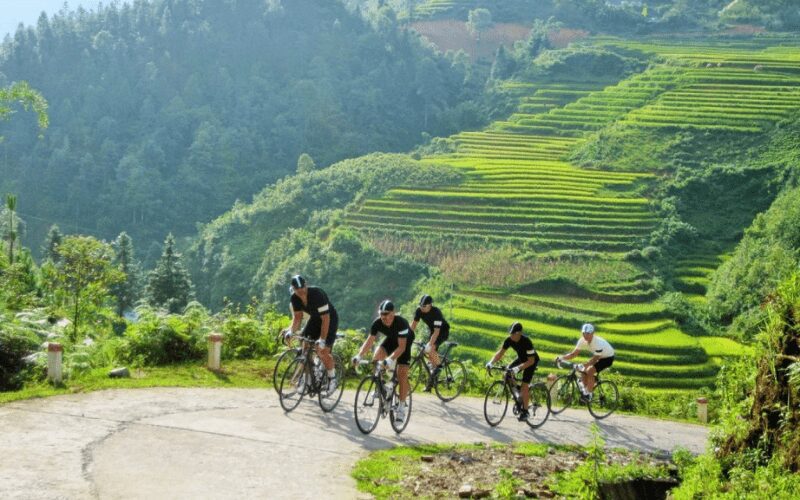
When selecting a bicycle for bikepacking Vietnam, a sturdy steel or alloy frame is often preferred for its load-bearing capacity. A 3×10 trekking group set provides the necessary range of gears to tackle various terrains and gradients, ensuring a comfortable and efficient ride.
Fortunately, Vietnam offers incredible bikepacking routes, from the winding roads of the Hai Van Pass in central Vietnam to the challenging climbs of the Sapa region in the north. The country’s national parks, such as Ba Be National Park and Phong Nha-Ke Bang National Park, welcome bike campers for a nominal fee. These campsites may provide basic amenities like cooking sheds, toilets, and shower facilities, although the level of comfort can vary.
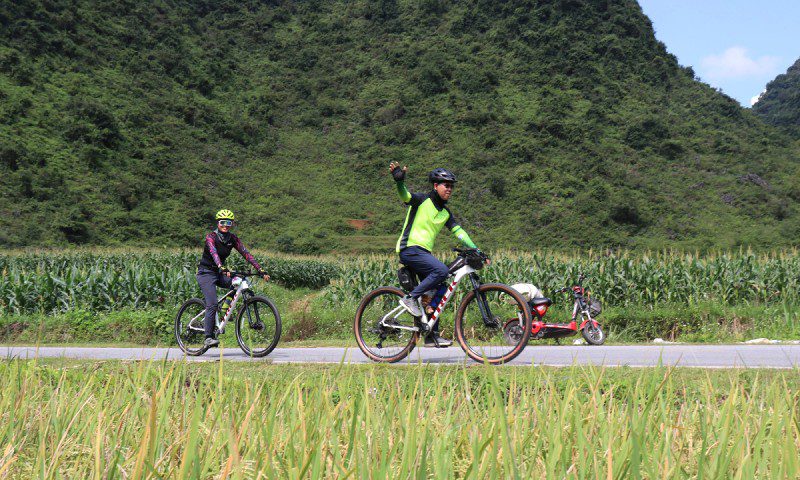
For a more immersive experience, adventurous cyclists can venture deep into the trails in search of secluded and pristine camping spots, often discovered through the shared experiences of fellow bikepacking Vietnam enthusiasts on social media.
Embarking on a bikepacking Vietnam adventure requires thorough planning and preparation, but the rewards are truly worth it. The opportunity to explore the great outdoors, breathe in the fresh air, and disconnect from the hustle and bustle of daily life is a deeply fulfilling experience, whether in the lush forests of Vietnam or the rugged landscapes of the country’s mountainous regions.
Conclusion
Bikepacking Vietnam is more than just conquering scenic routes—it’s an opportunity to connect with nature and embrace a simpler way of life. From campfire meals to peaceful nights under the stars, every moment on the road adds to the adventure. With careful planning and the right mindset, your bikepacking Vietnam journey will be one to remember. So gear up, hit the trails, and start your adventure today! Follow ExoTrails on Facebook for your daily dose of travel inspiration and tips.




